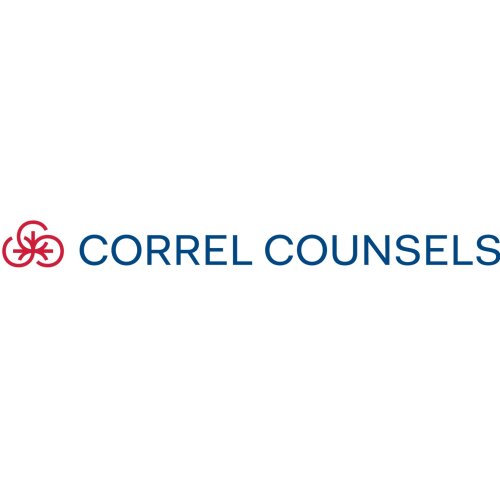Best Sexual Harassment Lawyers in Maldives
Share your needs with us, get contacted by law firms.
Free. Takes 2 min.
Or refine your search by selecting a city:
List of the best lawyers in Maldives
About Sexual Harassment Law in Maldives
Sexual harassment is considered a serious offense in the Maldives, a matrilineal and Islamic country. The country's Sexual Offenses Act enacted in 2014 (amended in 2019) recognizes sexual harassment, including physical and non-physical forms, making it illegal in the workplace, public areas, and educational institutions. The law takes a firm stand against any sort of influence, threat, coercion, or deception used to engage in sexual or sexually suggestive acts. However, since the prevailing cultural norms require a certain level of decorum, victims frequently do not report incidents due to fear of societal ostracization or retribution.
Why You May Need a Lawyer
Sexual harassment cases, given their sensitive nature, are fraught with numerous challenges. Fear, societal pressure, and lack of awareness are common reasons victims fail to report such incidents. Legal representation can provide reassurance, confidentiality, and professional expertise in navigating local laws. For individuals seeking redress, getting the right legal advice can transform the outcome by ensuring access to all the necessary resources and helping understand the paths to justice available to them.
Local Laws Overview
The Sexual Offenses Act and the Employment Act are the key legal instruments related to sexual harassment in the Maldives. The Sexual Offenses Act sanctions against numerous kinds of sexual offenses, such as rape, child sexual abuse, and sexual harassment. It outlines penalties, including imprisonment and fines, based on the nature of the crime. The Employment Act, on the other hand, regulates healthy work environments and mandates that employers establish explicit policies to prevent and handle sexual harassment incidents.
Frequently Asked Questions
1. What constitutes sexual harassment in the Maldives?
Sexual harassment in the Maldives includes any unwelcome sexual advances, request for sexual favors, sexually suggestive or offensive remarks, or display of obscene images. This also covers physical conduct of a sexual nature that interferes with an individual's work performance or creates an intimidating, hostile, or offensive working environment.
2. What should I do if I'm a victim of sexual harassment?
Inform the person of their unwelcome behavior, if you feel safe to do so. Document all incidents and report to your supervisor or human resources department. You should also consult a lawyer, as the case may require a legal action.
3. What are the legal penalties for sexual harassment in the Maldives?
Penalties can range from a fine to imprisonment, depending on the severity and recurrence of the offense, as outlined in the Sexual Offenses Act.
4. Can the lawyer guarantee a successful lawsuit?
While lawyers can provide guidance and defend your case to the best of their abilities, they cannot guarantee the outcome of the lawsuit, as this depends on the court's judgment.
5. Is there a statute of limitations for reporting sexual harassment?
The Maldives' Sexual Offenses Act does not explicitly specify a statute of limitations for sexual harassment. It is advisable to consult a lawyer for accurate information in this regard.
6. Can I file a complaint anonymously?
While protection of victims' identities is crucial, entirely anonymous reporting may pose challenges due to due process requirements. It is recommended to discuss such concerns with your lawyer.
7. What type of evidence should I collect?
Document every incident in detail including date, time, location, what happened, and if there were any witnesses. Try to retain any physical evidence, and records of communications such as e-mails or text messages.
8. Can I be fired for complaining about harassment?
The Employment Act in the Maldives protects employees from retaliation for reporting sexual harassment. If you face retaliation, it would constitute a separate violation that could warrant further legal action.
9. Are men protected by sexual harassment laws?
Yes, the laws in the Maldives protect everyone, regardless of gender, from sexual harassment.
10. Can I sue for sexual harassment if it occurred outside of work?
Yes, sexual harassment is unlawful regardless of where it takes place. Specific circumstances would determine the legal recourse available to the victim.
Additional Resources
Important bodies include Maldives Police Service for immediate reporting, Human Rights Commission of Maldives, and Ministry of Gender and Social Services for support. NGOs such as Hope For Women provide essential services to victims of gender-based violence.
Next Steps
If you're a victim of sexual harassment, consult a lawyer to understand your rights and available options. Following their advice, proceed with lodging a complaint to the relevant authorities. During this process, ensure your safety, seek psychological support if needed, and remember that justice often requires persistence and patience.
Lawzana helps you find the best lawyers and law firms in Maldives through a curated and pre-screened list of qualified legal professionals. Our platform offers rankings and detailed profiles of attorneys and law firms, allowing you to compare based on practice areas, including Sexual Harassment, experience, and client feedback.
Each profile includes a description of the firm's areas of practice, client reviews, team members and partners, year of establishment, spoken languages, office locations, contact information, social media presence, and any published articles or resources. Most firms on our platform speak English and are experienced in both local and international legal matters.
Get a quote from top-rated law firms in Maldives — quickly, securely, and without unnecessary hassle.
Disclaimer:
The information provided on this page is for general informational purposes only and does not constitute legal advice. While we strive to ensure the accuracy and relevance of the content, legal information may change over time, and interpretations of the law can vary. You should always consult with a qualified legal professional for advice specific to your situation.
We disclaim all liability for actions taken or not taken based on the content of this page. If you believe any information is incorrect or outdated, please contact us, and we will review and update it where appropriate.
Browse sexual harassment law firms by city in Maldives
Refine your search by selecting a city.
















